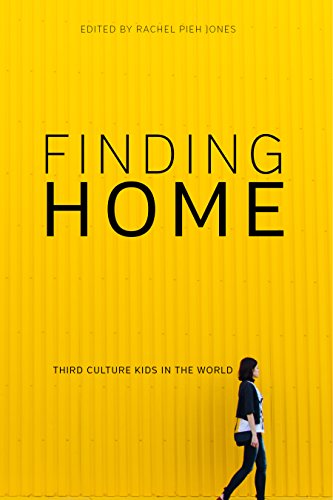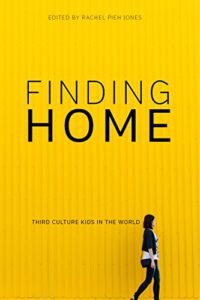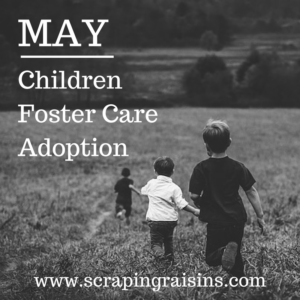
By Rachel Pieh Jones | Twitter
On the eve of my twin’s fourth birthday, they asked when they would turn black.
“Why do you think you will turn black?” I asked.
“Because everyone else is black,” they said.
We lived in Somaliland, a pasty-pink white-ish family, surrounded by Somalis.
“Karissa isn’t black,” I said. She was the daughter of another white family.
“She isn’t four yet,” my kids said.
“Well, your mom and dad are white, so you are white.”
“That’s not how it works,” the twins protested. “What about Jack and Negasti?”
They were a brother and sister, black, older than four, with white parents. They were adopted.
“You came out of my body and daddy’s body,” I said, “so you are white. They came out of a different mom and dad’s bodies and then joined that family.”
My kids were not convinced and went to bed certain they would wake up in the morning, four-years old, and with new skin.
My kids are Third Culture Kids, meaning they have spent a significant portion of their childhood years outside their passport country. Our global life has given them a unique perspective on things from skin color to what it means to belong to a family or a country.
We often refer to Djibouti, a small country in the Horn of Africa where we now live, as our ‘adoptive’ country, the place that has taken us in. But this is a misnomer because we are not Djiboutian.
Adopted kids are fully, 100% part of the family that adopts them. I have adopted nieces and nephews and they are all in. That’s just one of the beautiful things about adoption: it is a grafting in, becoming one family across various borders.
Expats are not all in. We are not all in, in Djibouti. We aren’t Djiboutian. In just a few weeks, those twins who thought they might turn black will graduate from high school and go to their passport country for university, a place they have spent less than three years living in.
In Finding Home: Third Culture Kids in the World, Galia Rautenberg writes about raising an adopted child in China.
“Our daughter is five now and often asked by peers and adults whether she is Chinese or a “foreigner.” Well, it is the right question to ask as she is ethnically Chinese, but her parents are not, and she speaks some languages which they can’t understand. So, does the fact she was born in China make her Chinese? Is she Israeli/German, born Chinese? She is living with Western culture at home and with another one while outside … Being an adopted TCK can complicate things but can also make it easier. We feel our daughter’s unique TCK situation will teach her so much for the future and help her cope with some of the hardships she might face along the way, adoption related issues and others.”
No matter a child’s skin color or international location, their adopted or biological birth status, there is a natural longing to understand identity (American? Djiboutian? Chinese? Israeli? German?), a desire for home, and the search for a place to belong. Third Culture Kids learn to be creative in finding that identity, home, and belonging.
What does it mean to live in a country in which we have no ancestry, no legal claim, most likely no generational future? What does it feel like to have that country imprinted on the heart but left behind when career, school, health, or family choices compel a transition?
What does it mean to ‘return’ to a country we may not feel attached to in any way other than by nature of the color of a passport or a label on a birth certificate?
The imagery of adoption and Third Culture Kids is helpful, but limited. I would love to hear your thoughts on the interplay between these two topics, so rich with questions of identity.
Do you find connections between the two? What might be some unique questions faced by adopted TCKs? How might their adoption help them navigate life between worlds?
You can read the rest of Galia’s essay on adoption and TCKs, as well as many others, in Finding Home: Third Culture Kids in the World, a book of essays on loving, raising, and being a TCK. The book is based on the Painting Pictures blog series hosted on Djibouti Jones in 2012 and is available on Amazon.
About Rachel:
 Rachel Pieh Jones lives in Djibouti with her husband and three children. She has written for the New York Times, Runners World, the Christian Science Monitor, Brain Child, and the Big Roundtable. Her next book will be published by Plough in 2019. Visit her at: Djibouti Jones, her Facebook page, Twitter @rachelpiehjones, and Instagram: @rachelpiehjones. Check out her award winning cookbook, Djiboutilicious.
Rachel Pieh Jones lives in Djibouti with her husband and three children. She has written for the New York Times, Runners World, the Christian Science Monitor, Brain Child, and the Big Roundtable. Her next book will be published by Plough in 2019. Visit her at: Djibouti Jones, her Facebook page, Twitter @rachelpiehjones, and Instagram: @rachelpiehjones. Check out her award winning cookbook, Djiboutilicious.
***
GIVEAWAY OF FINDING HOME!
 We’re doing a giveaway of the e-version of this book of essays by various writers about what it’s like to raise or be a Third Culture Kid (TCK). To enter, simply sign up for my newsletter AND Rachel’s newsletter before this Friday, May 26th, midnight (MT) and we’ll draw a name after that and email the winner!
We’re doing a giveaway of the e-version of this book of essays by various writers about what it’s like to raise or be a Third Culture Kid (TCK). To enter, simply sign up for my newsletter AND Rachel’s newsletter before this Friday, May 26th, midnight (MT) and we’ll draw a name after that and email the winner!
***

This month on Scraping Raisins, we’re talking about adoption, foster care and children. If you’re interested in guest posting about this theme, shoot me an email at scrapingraisins (dot) gmail (dot) com. The theme for June is “Create,” so you can also be thinking ahead for that. Be sure to check back or follow me on social media so you don’t miss the fabulous guest posters I have lined up this month!
Sign up for the Mid-month Digest and Secret Newsletter Here:
*This post includes Amazon affiliate links.
